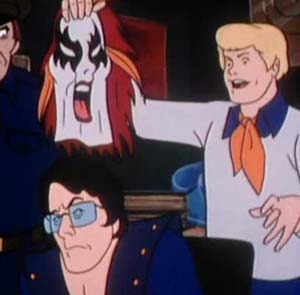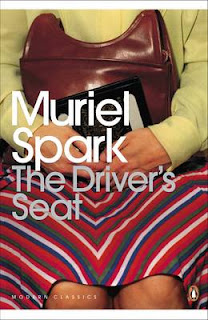If for some reason you were expecting book-things on this blog, don't bother with the rest of this, and go read
this post at the Foyle's blog by a PhD student in English Lit whose feelings I recognize entirely:
I actually find that I now prefer non-fiction; I recently told my thesis
supervisor that I would rather read a biography of Dickens than a
Dickens' novel and he looked at me approvingly. But to me it's an almost
painful admission because, ironically, the very love of literature
which drove me to its study, also forced much of the joy of reading out
of me. So you go on, and I'll just be here making use of my favorite blog label: "blah".
As I contemplate the cruel realities of volume and mass, and pack my suitcases, I thought I would procrastinate a little further through the venerable art of list-making. So here are five favorite places, or secret places, or whatever.
1. Diwana Indian buffet, Drummond Street
Drummond Street is sort of behind/next to Euston Station, which can be a convenient location depending on what you're doing. Diwana is one of several little Indian places back here - it's the only one I've eaten at which is the only reason it's the one I'm recommending. Anyway, it's vegetarian, the lunch buffet currently costs only £7, and the staff isn't sullen about just bringing you tap water if you want to keep your costs down. It gets enough lunch traffic that the buffet is relatively fresh, and there must be ten hot options and six cold options on average, plus bread-type things, samosas, and fruits for dessert. All in all, a good choice.
2. Laveli, next to Acton Central Overground
There's no reason on earth to come to Acton for this reason, but if you're
in Acton for some reason, this is a great place. It's an family-run, baked-in-house, bakery/cafe right next to the Overground station. There are several cafes near the station, but this is my absolute go-to. Sure, it's sometimes a little rough around the edges; in particular some days the pastries are a little... overdone... but the coffee is good, and these might be my favorite croissants of anywhere. They're flaky, they're buttery, I love them. They also have sandwiches, various hot and cold salads (in the British sense of "side dishes containing vegetables"), some fancy little cakes and tarts, and gelato.
3. The best reading spot in South Kensington or possibly anywhere
The newly renovated Medieval galleries at the V&A have their own oval staircase and glass elev- I mean, lift. If you go in through the main entrance on Cromwell Road, turn right and go down the steps into the Medieval gallery; you'll find the staircase on your left across from the Palm Sunday procession case. You go up two levels to a curved area where there are two very large, multi-storey wooden objects hung: a 17th century wooden facade of a house, and a set of stairs and balconies from France. If you go over to look at these more closely, you will find a whole set of built-in cushioned seats. If you sit there and crane your neck you'll notice that the roof of this area is glass. That's right: natural light. Perfection. Even on a very busy weekend, this area was relatively quiet, with a steady stream of visitors but very few people sitting down.
4. Harrods food halls, half an hour before close
They mark things down half-price at the end of the day. I'm not sure that
all of the perishables get marked down (specifically, I'm not sure about the salads in the deli cases), so look out for the red signs/labels, but you can get some delicious things. I particularly like the breads/patisserie area; this stuff is pretty fairly priced to begin with, all things considered, so it qualifies as a bona fide bargain. Worth battling the freaking tourists.
5. Royal Festival Hall/Southbank Centre, with or without concert tickets
If you like music and performing art and whatnot, it's worth your time to see what's on at the Southbank Centre during a visit to London; they do a lot of festival/exhibit type things too. But you know what? I have a soft spot for just sort of hanging out. There's free wifi, and it's actually worked when I've been there. There are lots of windows and natural light; couches and tables and chairs; seating areas that seem big and spacious and others that feel more cozy. There's a cafe and a bar on the main level, and lots of restaurants in the complex, plus a Foyle's bookstore and a store that sells art/design type stuff. For certain types of work I like to bring my laptop out somewhere I can have coffee and not be cooped up at home, and while I like a cozy cafe as much as anyone, I haaaaate dragging my laptop around trying to find one that actually has a seat open. Royal Festival Hall is, in my experience, a pretty good bet.
Let's pretend that most of those aren't food related and add:
Two Sugar-themed Honorable Mentions:
Rose and violet flavored things, various places
These are not flavors that one comes across in the US, and I have become
obsessed with them. Rose is slightly more common: you can get rose tea by Twinings or several other brands. Rose and violet chocolates seem popular; rose cremes and violet cremes can be found in the cases at Harrods and Fortnum and Mason, or pre-boxed from Prestat and Charbonnel et Walker. Fortnum and Mason also sells a £5 rose and violet chocolate bar. Rococo Chocolates has rose and violet cremes, chocolate bars, chocolate wafers, and hard candies. La Fromagerie, a gourmet store (guess the specialty) just off Marylebone High Street has the biggest range of violet non-chocolate I've come across: violet black tea, violet green tea, violet hard candies, and even a violet syrup they suggest mixing with champagne. Finally, if you want to be super girly about it, Laduree in Harrods serves both rose and violet teas, and has at least two rose flavored pastries in their line-up, in addition to rose and blackcurrant-violet macarons. You can buy their teas loose-leaf, and get the pastries packaged to take away, but I think it's worth a splurge to eat in. Rose perfumes are obviously everywhere; but for violet perfume, go to Penhaligon's and weep over the price tag on the to-die-for Violetta.
Grown-Up Chocolate Company's Crunchy Praline Wonder Bar
There is a lot of gourmet chocolate out there (there's a lot of gourmet
everything out there). The wonderfully named and branded Grown-Up Chocolate Company makes a series of chocolate bars are are presented as sophisticated gourmet spins on mainstream candy bar types. I'm no gourmand, but the
instant I put this in my mouth, I knew this was quality. It's rich and good and luxurious in a really enjoyable way that had even me --
even me -- wanting to eat more slowly and savor the experience. The only place I've seen these for sale is at the Sourced Market in St Pancras International Rail Station, where they are £2.50. Worth it.




























